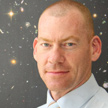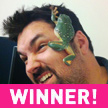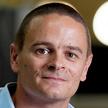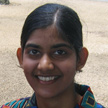
Steven Tingay
Favourite Thing: Work with amazing people and travel around the world, in the quest to discover a little more about how the Universe works and what our place in it is.
My CV
School:
Spring Gully Primary School (1975 – 1981); Catholic College Bendigo (1982 – 1987).
University:
The University of Melbourne (1988 – 1991); The Australian National University, Canberra (1992 – 1996).
Work History:
NASA Jet Propulsion Laboratory, Pasadena, California (1996 – 1999); CSIRO Paul Wild Observatory, Narrabri, NSW (1999 – 2002); Swinburne University of Technology, Melbourne (2003 – 2007).
Employer:
Curtin University in Perth, since 2007.
Current Job:
Professor of Radio Astronomy and Western Australian Premier’s Fellow (plus Director of Murchison Widefield Array).
Me and my work
I build and use radio telescopes in order to figure out how the Universe originated and has evolved over the last 13.7 billion years.
I did my PhD in radio astronomy, linking up different radio telescopes around the world to look into the hearts of galaxies at cosmological distances, to see what is happening very close to the supermassive black holes that live in the galaxies. I still do this work and have a research team of about ten people working in this field.
However, over the last ten years I’ve branched out into lots of other different areas. Most of my work is aimed at helping to design and build the Square Kilometre Array (SKA: http://www.skatelescope.org), a multi-billion dollar instrument that will be able to see all the way back in time to the Big Bang.
I’m Director of the Murchison Widefield Array (MWA: http://facebook.com/Murchison.Widefield.Array), an SKA prototype that costs $50m and is currently being built in Western Australia. The MWA works at low radio frequencies and will blaze a trail for SKA science. I’ve gotten very interested in searching for powerful millsecond explosions in the Universe, which might tell us a lot about the material in the Universe that exists between galaxies.
To do all of these experiments I use existing telescopes in Australia, Europe, China, Japan, the US, and South Africa. A lot of the time these days, I’m coming up with ideas that existing telescopes can’t be used for, so I’ve become an instrumental scientist as well, designing and building special-purpose telescopes to do some of these experiments.
I supervise a team of about 50 researchers, about 10 of which are PhD students. I therefore have a lot of administrative and management work to do. I would estimate that I spend about 40 – 60% of my time in management and administration and the rest in research – sometimes it is a fuzzy line. However, I make up for it by working about 80 hours a week, on average. I travel around Australia and internationally about 25 – 30% of my time, depending what is going on in my various projects. I collaborate and work with dozens of people around the world. You can see where I am and what I’m doing by friending me on Facebook (I’m a bit of a Facebook fan): http://www.facebook.com/steven.tingay.
My Typical Day
Lots of meetings with students and research staff, lots of emails with people all around the world, processing data at my computer.
My typical day depends if I’m in Perth or on travel. On average I travel about 25 – 30% of the time, interstate and overseas. If in Perth, I get up early, get a few emails out of the way, ride bike to the gym (~hour of weight training). Then to work at about 8:30am. Standard day involves a lot of meetings with students and research staff, checking progress on their projects and setting them work to do. A lot of email gets answered through the day from colleagues and collaborators from around the world. I have a lot of management meetings too at the University and as part of the various research centres I participate in. Generally I’m home from work between 5pm and 6pm, dinner and time with the family, and put kids to bed. Generally I work in the evenings. With the days spent in meetings, I generally do some writing in the evenings, work on papers, read and work on data. Often I have quite a few after hours telecons with collaborators in the US or Europe.
If on travel, I’m at conferences, project meetings or review panels/boards. In this case, I try to get some exercise daily, but the benefits are more than negated by conference food (cakes, coffee, big meals) and beer after hours while socialising catching up with colleagues and mates from around the world. Generally I get a lot of work done while traveling.
What I'd do with the money
Send one of my students to a conference.
The prize money is not enough to get me excited, financially. I manage about $20m, so the money will not change my life. But it would be a good amount to give to one of my students, to help them to go to a conference and present their work. It would be about 20% of a trip overseas for one of my students, so if I won, I’d give it away.
I joined this competition so that I could explain to people what I do, chat with some enthusiastic proto-scientists and hopefully inspire a few people to get interested in astronomy, science and a career in research. Inspiring one person would be worth ten times the prize money for me.
My Interview
How would you describe yourself in 3 words?
Intense, opportunistic, thoughtful.
Who is your favourite singer or band?
At the moment, Skrillex.
What is the most fun thing you've done?
Six months travelling around Europe (The Netherlands, Germany, Italy) on sabatical.
If you had 3 wishes for yourself what would they be? - be honest!
Achive good work/life balance; Make major discovery about the Universe; Still be a bold researcher, 20 years down the track.
What did you want to be after you left school?
Astronomer
Were you ever in trouble in at school?
A bit, not really.
What's the best thing you've done as a scientist?
Built up a team of 50 great researchers and PhD students. Watching them work and giving them direction.
Tell us a joke.
Can’t. I can only remember the crude ones.
Sports followed
AFL, cricket, athletics, rugby union
Favourite team
St Kilda
My profile link:
https://helium.imascientist.org.au/profile/steventingay/






